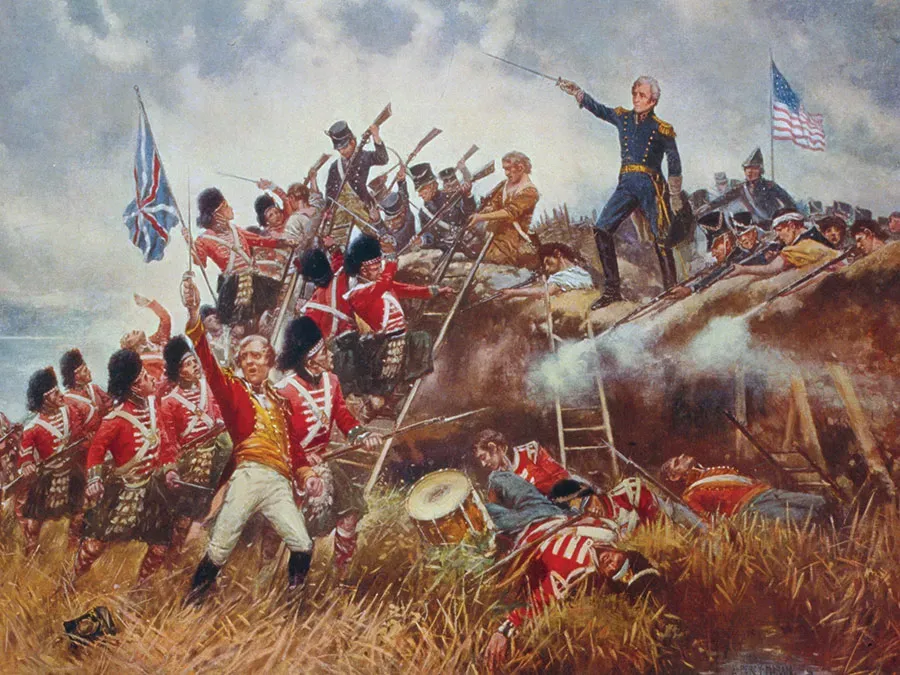26 Decade-Defining Events in U.S. History
This list highlights 26 pivotal events that have significantly shaped U.S. history, impacting the nation's social, political, and economic landscape. These events range from the American Revolution, which established the country's independence, to the Civil War, which addressed deep-seated issues of slavery and union. Other significant moments include the Great Depression, the Civil Rights Movement, and the 9/11 attacks, each marking a turning point that prompted profound changes in American society and governance.

Understanding the pivotal moments in U.S. history is essential for grasping the nation's evolution and its global influence. The following list outlines 26 decade-defining events that have significantly shaped the United States from its inception to the present day. Each of these events not only defines the respective decade but also plays a crucial role in the larger narrative of American history.
1900s - The Progressive Era
1. ''Theodore Roosevelt'' becomes President (1901) - A proponent of the Progressive Movement, Roosevelt championed reforms aimed at curbing corporate power and improving public welfare.
2. ''The Wright Brothers’ First Flight'' (1903) - Marking the dawn of aviation, this event revolutionized transportation and connected the nation in unprecedented ways.
1910s - World War I
3. ''U.S. Entry into WWI'' (1917) - The United States joined the Allied Powers, marking a significant turning point in the war and establishing the U.S. as a global power.
4. ''Women’s Suffrage Movement'' - The push for women’s voting rights gained momentum, culminating in the 19th Amendment in 1920.
1920s - The Roaring Twenties
5. ''Prohibition'' (1920) - The 18th Amendment prohibited alcohol, leading to a cultural shift and the rise of speakeasies and organized crime.
6. ''The Stock Market Crash'' (1929) - This event marked the end of the decade's prosperity and set the stage for the Great Depression.
1930s - The Great Depression
7. ''The New Deal'' (1933) - President Franklin D. Roosevelt's series of programs aimed to recover from the Great Depression and reform the financial system.
8. ''Social Security Act'' (1935) - This landmark legislation established a social safety net for the elderly and unemployed, changing the role of government in American life.
1940s - World War II
9. ''Pearl Harbor Attack'' (1941) - This surprise military strike led the U.S. to enter WWII, significantly impacting the course of the conflict.
10. ''D-Day'' (1944) - The Allied invasion of Normandy was a crucial turning point in WWII, leading to the liberation of Europe from Nazi control.
1950s - The Cold War
11. ''McCarthyism'' - This period was marked by heightened fears of communism, leading to political repression and social paranoia.
12. ''Brown v. Board of Education'' (1954) - The Supreme Court ruling declared racial segregation in public schools unconstitutional, a pivotal moment in the Civil Rights Movement.
1960s - Civil Rights Movement
13. ''Civil Rights Act'' (1964) - This landmark legislation outlawed discrimination based on race, color, religion, sex, or national origin.
14. ''Moon Landing'' (1969) - The Apollo 11 mission marked a significant achievement in space exploration, symbolizing American ingenuity and determination.
1970s - Social Change and Environmental Awareness
15. ''Watergate Scandal'' - This political scandal led to President Nixon’s resignation in 1974, highlighting issues of corruption and accountability in government.
16. ''Environmental Protection Agency Established'' (1970) - The creation of the EPA marked the beginning of serious governmental efforts to address environmental issues.
1980s - The Reagan Era
17. ''Reaganomics'' - President Ronald Reagan's economic policies focused on tax cuts, deregulation, and a reduction in government spending, profoundly impacting the economy.
18. ''End of the Cold War'' - The decade saw the easing of tensions between the U.S. and the Soviet Union, culminating in the fall of the Berlin Wall in 1989.
1990s - Technological Advancements
19. ''Internet Boom'' - The rapid expansion of the internet transformed communication, commerce, and social interaction in the United States.
20. ''Impeachment of Bill Clinton'' - The 1998 impeachment of President Clinton highlighted issues of personal misconduct and political polarization.
2000s - The War on Terror
21. ''September 11 Attacks'' (2001) - These terrorist attacks profoundly changed U.S. domestic and foreign policy, leading to the War on Terror.
22. ''The Great Recession'' (2007-2009) - The financial crisis that began in 2007 had severe economic repercussions and led to widespread unemployment and housing foreclosures.
2010s - Social Movements
23. ''Affordable Care Act'' (2010) - This significant healthcare reform aimed to expand access to insurance and reduce healthcare costs for Americans.
24. ''Black Lives Matter Movement'' - This social movement gained prominence in response to police violence against African Americans, highlighting issues of racial injustice.
2020s - Ongoing Challenges
25. ''COVID-19 Pandemic'' - The global health crisis has affected every aspect of life in the U.S., from healthcare to the economy and social interactions.
26. ''Political Polarization and Social Movements'' - The decade has seen increased political division and activism around issues like climate change, racial equality, and economic reform.
Each of these events provides a lens through which we can analyze the complexities of American history. From the early days of the nation to the modern challenges faced today, these defining moments have shaped the United States into what it is now. Understanding these events not only helps us appreciate the past but also informs our present and future as a nation.












